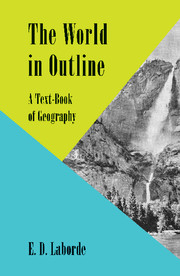Summary
THE principal feature in the study of the geography of Europe is the progress which man has achieved in the control of nature and his increasing ability to make full use of the gifts that she offers him. Not that the influence of geography has been or ever will be removed. The distribution of fertile lowland will ever determine the centres of agriculture, deposits of minerals will continue to decide the position of industrial areas; routes will always follow the lines of most unbroken relief, and climate will place limits on the extension of the various kinds of crops. Yet in no other continent has man's use of the various natural advantages and his removal of geographical disadvantages reached so high a degree of achievement. Great forest tracts may remain almost untouched by man in Brazil or Siberia; but in Europe forestry, with its selection of species, its systematic felling and replacement of trees, has become a full-fledged science. The largest coalfields in the world lie almost waste in Siberia, China, and Alaska; but every mineral deposit in Europe is being exploited to the full economic capacity. Scientific farming and stock-rearing have replaced the old haphazard methods, and even fishing and fur production are being controlled on lines similar to those of stock-rearing. Industrial progress is every day wresting further secrets from nature. The sands of Saxony are made into glass, the clay of the London Basin forced to yield aluminium, the smaller trees of Norway and Sweden which were formerly used merely as firewood are now being turned into plywood, match sticks, and pulp from which an infinite number of articles are manufactured. Transport, too, has been made so easy along the railways, great motor roads, and airways that it is now difficult to understand why in former times a ridge of hills of moderate height and gradient, like the Pennines, formed so great an obstacle to the passage of men. In fact, man has almost completely triumphed over nature. This is the chief interest of the following pages.
- Type
- Chapter
- Information
- The World in OutlineA Text-Book of Geography, pp. 1 - 18Publisher: Cambridge University PressPrint publication year: 2013



